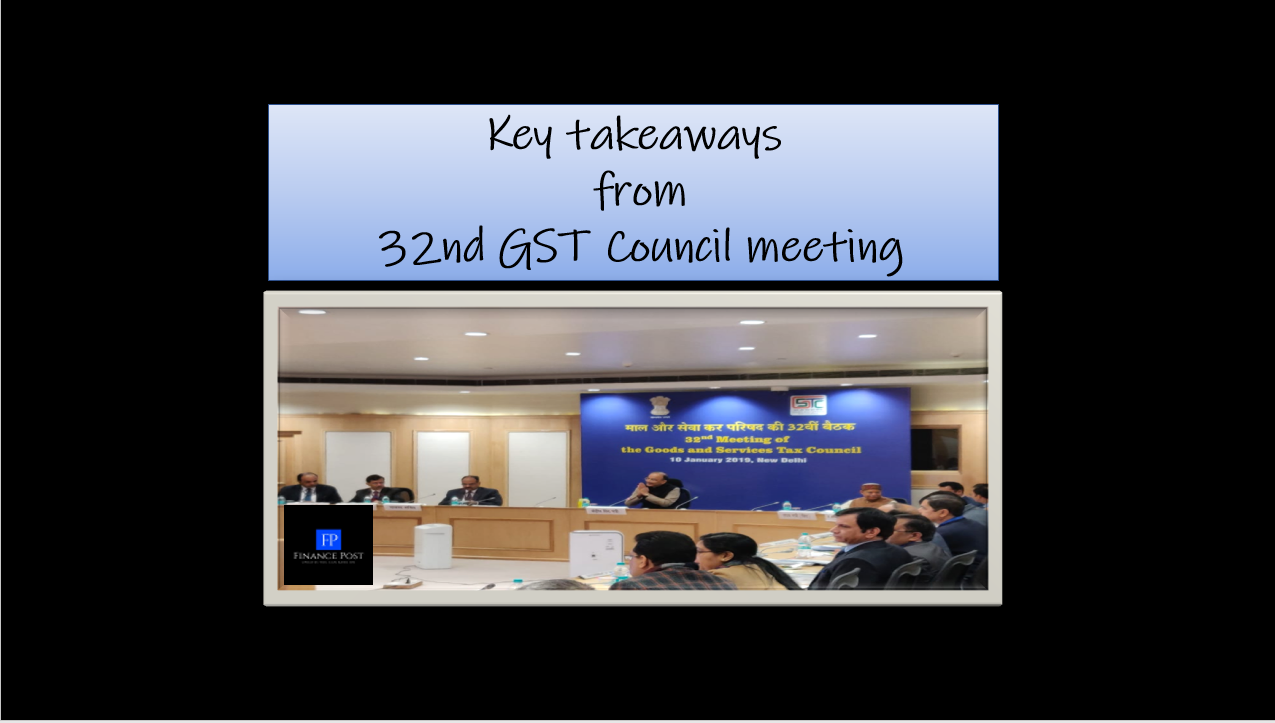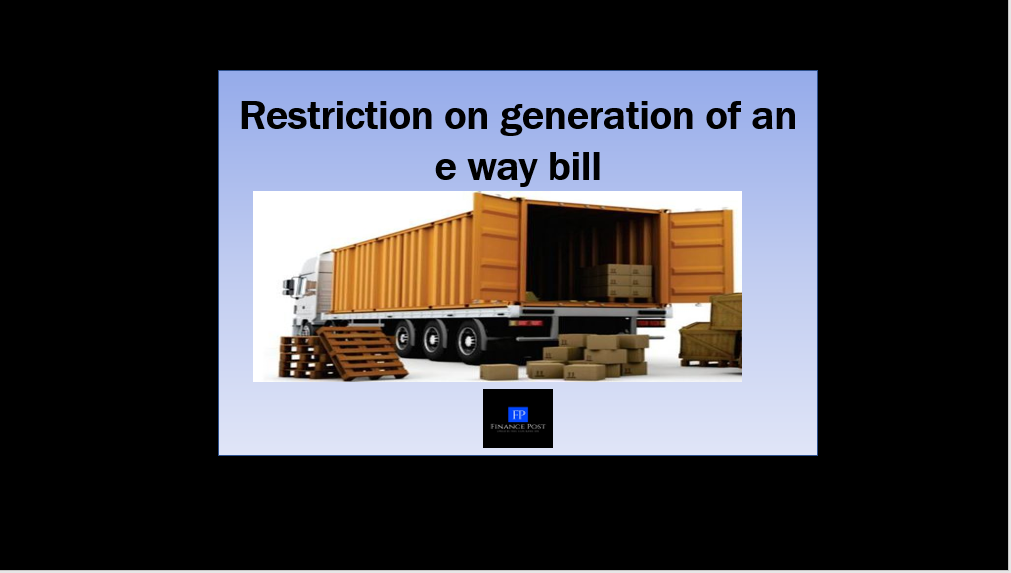
Last updated on May 16th, 2021 at 05:02 pm
Key takeaways from 32nd GST Council Meeting
32nd GST Council Meeting was conducted on 10th January 2019. Shri Arun Jaitley, the Union Minister of Finance & Corporate Affairs was the chairman of the meeting. The last GST Council Meeting was held on 22nd Dec 2018. (Check decisions taken in 31st GST Council Meeting)
[su_table]
| Meeting | 32nd GST Council Meeting |
| Date | Thursday, 10th January 2019 |
| Chairperson | Finance Minister Arun Jaitley |
| Venue | Vigyan Bhawan, New Delhi |
| Attendees | Finance Ministers of all the states |
[/su_table]
Decisions taken in 32nd GST Council Meeting
Following are the updates from the press/media which was addressed by Finance Minister Arun Jaitley after the GST council meeting :
Composition scheme w.e.f. from 1st April 2019
- The annual aggregate turnover threshold will be increased to Rs. 1.5 crore from Rs. 1 crore from 1st April 2019 for taxpayers registered under the composition scheme.
- Composition taxpayers will be allowed to make the payment towards the GST liability on a quarterly basis.
- File single GST returns annually to make the procedural burden/ compliance easy.
Service Providers w.e.f. from 1st April 2019
- Service providers having annual aggregate turnover up to Rs. 50 lakhs will be allowed to avail the benefit of the composition scheme. Those who supply mixed services (services and goods) will also be covered here.
- Tax rate proposed is 6% (3% -CGST & 3% – SGST) for the services providers covered under the composition scheme.
GST Registration w.e.f. from 1st April 2019
- If the annual aggregate turnover does not exceed Rs. 40 lakhs as against Rs. 20 lakhs (now) then it is not mandatory to obtain GST registration.
- One-time exemption for other states can decrease their limit to Rs. 20 lakhs (opt-down) if the state informs about the same within a week.
- For NorthEastern and hilly states flagged as special category states, if the annual aggregate turnover does not exceed Rs. 20 lakhs as against Rs. 10 lakhs (now) then it is not mandatory to obtain GST registration (Note: Jammu Kashmir and Assam had increased their limits earlier)
- One-time exemption for such special category states can increase their limit to Rs. 40 lakhs (opt-up) if the state informs about the same within a week.
Calamity Cess for intrastate sale
- There is a provision in the GST law that allows states to levy special taxes for a specified period in order to raise additional funds in cases of any natural calamity or disaster. The ministerial panel had approved an additional levy of 1% as calamity cess by Kerala for a period of two years to raise funds for rehabilitation work in the state which was badly hit by floods.
- It has been approved by the GST Council.
Real Estate & Lottery
- It was expected that the decisions would be taken for rate rationalization in the real estate sector as well as the lottery. But the same could not be taken as there was no consensus between the members present at the GST council meeting on rate rationalization on the real estate sector and lottery.
- A seven-member Group of Ministers will be constituted who will consider the proposition of a composition scheme for the real estate sector specifically the residential segment.
- Another Group of Ministers will be formed which will examine the rate structure for lotteries.
Related Posts
- 50th GST Council Meeting - 11/07/2023
- GST Compliance Calendar of October 2023 - 01/04/2023
- GST sections amended in Finance Act 2023 - 27/03/2023
Disclaimer: The above content is for general info purpose only and does not constitute professional advice. The author/ website will not be liable for any inaccurate / incomplete information and any reliance you place on the content is strictly at your risk.
Follow us on Social Media by clicking below
Follow @financepost_in


Be the first to comment